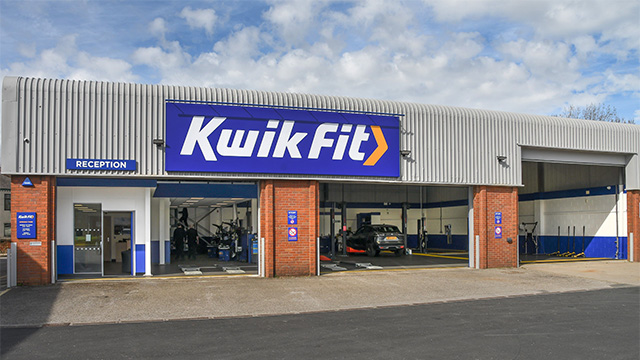Hi-tech and telecoms firms in the US have ridden a rollercoaster in recent years, but agents are confident that the sector’s property market will recover well, if slowly.
By Noella Pio Kivlehan
The US hi-tech market has suffered a cruel twist of fate. Just when many firms had thought they had gone through the worst of the recession of the past two years, they have been knocked sideways by the stock market plunge triggered by accounting scandals.
In 2000, the bursting of the overinflated dot.com bubble precipitated the downturn in the economy, and the IT and telecoms sector followed suit. Soon the US was in its second recession in 10 years.
The sector’s dedicated stock market index – the NASDAQ – sank like a stone. Daily tales of tumbling share prices became commonplace. At the peak of the boom, technology companies accounted for 36% of the value of all US stocks, compared with only 10% a few years before. The bubble bursting slashed that back to 23%. The events of 11 September made things worse.
Earlier this year, light began to appear at the end of the tunnel. Robert Bach, national director for market analysis at Grubb & Ellis in Chicago, says: “In the second quarter of this year, the property market had started to level off.”
According to Bach, after five quarters of negative absorption and shrinking in 2000, the market overall started to show improvement and the rate of decline eased.
It looked as though the US economy – and the hi-tech sector in particular – was slowly easing its way out of the gloom.
Then came the scandal of WorldCom, a company providing telecoms infrastructure for the internet. On 26 June, WorldCom announced – to a world still reeling from the Enron fiasco the previous month – that it had played fast and loose with its accounting. It admitted that it had improperly booked $3.9bn in expenses for the previous five quarters in an attempt to cover up $1.22bn in losses, and was going to lay off 17,000 staff.
When the news broke, it wiped an estimated £35bn off share values in the UK alone. On 17 July, US Federal Reserve chairman Alan Greenspan said that, although the economy had withstood hard shocks and should recover fully, “uncertainties about business investment spending and corporate misbehaviour could still slow the recovery”.
Taking up too much space
The US property world was left worrying whether another round of businesses in the telecoms sector would go under and flood the market with stock.
A report published two weeks ago by US firm Grubb & Ellis looked at the Texan arm of WorldCom. At present, says the report, the company occupies in excess of 2m sq ft (185,800m2) across the state. Grubb & Ellis predicts that WorldCom’s staff cuts will reduce its demand for office space by 255,000 sq ft (23,700m2), of which 200,000 sq ft (18,600m2) is in Dallas and the remaining 55,000 sq ft (5,100m2) is in San Antonio.
This is a scenario the US property market does not welcome. It has experienced previous highs and lows, with over-eager telecoms companies purchasing space only to be left crying when recession hit. Vacant space across the US has risen from 8.5% in the fourth quarter of 2000 to 16% in the second quarter of this year. Rents in Silicon Valley, the Mecca of the world’s hi-tech industry, have dropped to $30 per sq ft from $80 per sq ft two years ago.
It was overconfidence that brought the US’s hi-tech property market to boiling point, according to Bill Maher of LaSalle Investment Management in Baltimore, Massachusetts. The booming economy, growth of the internet and worldwide demand for IT equipment drove the market sky-high between 1998 and 2000.
From a property point of view, problems arose because companies such as data centre operators Global Crossing and Alpheida were not only employing more staff but also taking space that they did not need, based on the expectation of long-term growth.
“They thought there would be limited availability of space, which is why they snapped up a lot of property. The hi-tech property market had the lowest vacancy rate in the country,” says Maher.
Many companies then found themselves in the middle of a recession, saddled with too much space. “Companies tried to reduce their costs as soon as they could,” says Maher. “They were negotiating with their landlords to take space back or trying to get other businesses to take sublets.”
However, Seth Studley, executive vice-president of US agent Julian J Studley’s Los Angeles office, says that in Los Angeles many landlords left with vacant space by terminated hi-tech company leases have filled these offices with more traditional, creditworthy tenants.
Retrenchment by computer manufacturers such as Hewlett Packard and Compaq, as well as by software manufacturers in response to falling sales, has worsened the property situation.
Despite the economic downturn, problems with telecoms companies such as WorldCom and the continuing instability of sectors such as the computer chip market, the US attitude is one of resilience. “Well, it’s not as bad as it was the last time,” says Maher – referring to the US recession of the early 1990s.
To a degree, this is true. Interest rates are far lower than they were during the earlier recession. The present rate is 4.5%, compared with an average of 7.5% during 1990.
According to G&E’s Bach: “Low interest rates are one factor in favour of the economy. The investment market is very robust and people want to buy into the commercial market, despite the fact that the leasing market is slow.”
Bach says that low interest rates and more conservative financing have meant that people fleeing the stock market are choosing to invest in the property market. “What it means for the hi-tech market is that it should avoid the conditions of 10 years ago where a lot of owners had to let premises go back to the lender. Because of the low interest rates, we don’t see that happening,” he says.
Although the slump is not as bad as in the early 1990s, most agents agree that the market will never regain the heady heights experienced before this current recession. Despite being generally optimistic, Bach does not expect a recovery in hi-tech property before 2005. “The hi-tech market is still going to face a slow recovery,” he says.
Towards recovery
However, hope springs eternal. Matthew Millar of CRESA Partners, an ATIS Real Weatheralls-associated firm in Los Angeles, predicts a positive future. While he concedes that there will still be fears about the massive losses from the telecoms sector and that devaluation of the NASDAQ is likely, he says: “The technology revolution is nowhere near over.”
Millar adds: “Well-managed firms which have learned from the last shakeout will continue to be able to raise money and attract top talent. With real estate prices low, equipment financing available at low rates and engineering/management talent plentiful, the scene is set for technology firms to grow and prosper.”
From a property perspective, Millar says that the impact of the hi-tech sector’s problems on the US market should not be significant in the short term.
Even the WorldCom scandal may not be as bad as everybody fears. Although the firm will probably have to close offices and some stock may come back onto the market, Maher says that this should happen fairly gradually over the next six to 12 months.
He adds: “This won’t knock back the market too much, because we are already seeing signs of recovery and by that time we should be well on our way.”
With President George W Bush’s signing of a bill last week designed to deter, expose and punish corporate crime, perhaps the economy will regain confidence and allow the property market to flourish again.
Defence-led recovery
War on terrorism gives hi-tech some orders
One sector of the hi-tech market doing well is defence-related business, reflecting the US’s war on terrorism.
Alan Fogg, director of communications for economic development in Fairfax County, Virginia – which has over 4,000 telecoms companies in the region – says: “Defence-related companies seem to be picking up the slack as the government ramps up its anti-terrorism efforts.”
US government statistics for durable goods, released two weeks ago, show that non-defence capital expenditure fell by 9% in June, while defence capital orders were up by 18%.
Examples of orders include technology for army aircraft.
According to Robert Bach, national director for market analysis at Grubb & Ellis in Chicago: “This is a direct reverse of what was happening in the market two to three years ago.”
|
US office vacancy rate |
|
Landlords have been left with space after IT companies ceased trading |
|
Source: Grubb & Ellis |










